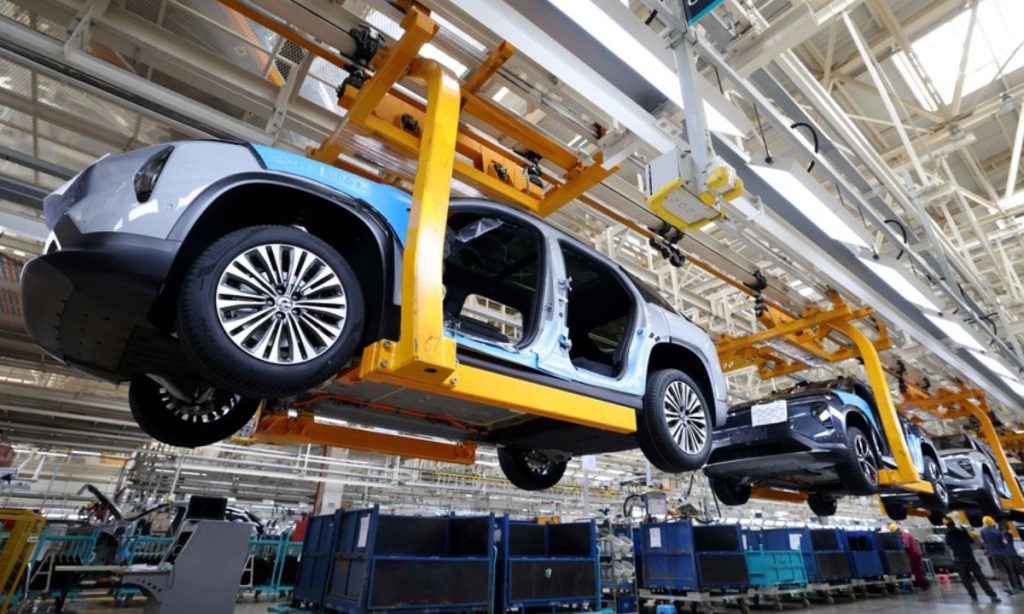China's new-energy industries contribute to global green transformation, 'overcapacity' hype unfounded: MOFCOM

China's Ministry of Commerce (MOFCOM) on Tuesday said that hype about "overcapacity" in China goes against common sense and facts, shows double standards and is a form of trade protectionism.
The rise of China's new-energy industries is built on open competition rather than subsidies. It represents advanced production capacity and makes a huge contribution to easing global inflation, as well as the green transformation, MOFCOM said.
MOFCOM said the accusation that China has "overcapacity" is unfounded. The issue of production capacity should be viewed objectively and it should match global production and demand.
In 2023, Germany sold 80 percent of its auto production internationally. Japan exported approximately 50 percent of its cars, while China's overseas sales of new-energy vehicles (NEVs) accounted for only 12.7 percent of its production. Criticizing China for "overcapacity" is therefore unfounded.
Chinese new-energy products are popular in the international market due to their competitive prices and the urgent global need for green transformation. The NEVs exported from China to Europe are priced lower than European-made models, but still higher than in China so there is no dumping involved, MOFCOM said.
Furthermore, with the global demand for new-energy products continuing to expand, advanced production capacity is not only not excessive but actually insufficient, it added.
MOFCOM also noted that China's advantages in the new-energy industry have been achieved through open competition and continuous technological innovation, with Chinese companies investing in research and development in the new-energy sector for over 20 years.
The industry also benefits from an efficient supply chain, while China's large and competitive market drives rapid application and development of technologies as well as a collaborative approach to foreign investment and automakers.
MOFCOM said the accusation that Chinese industrial subsidies have led to "overcapacity" is unfounded. Industrial subsidies are a common practice worldwide. China's industrial subsidy policy is compliant with WTO rules while those of the US and Europe are even larger in scale.
MOFCOM said that the hype about "overcapacity" is actually a reflection of anxiety from other countries about their own competitiveness. However, trade protectionism will not achieve the desired results and will only hinder global economic recovery and the green transformation.
MOFCOM said that China is willing to deepen cooperation in the new-energy supply chain, and promote technological innovation and industrial development with countries around the world. It will continue to promote opening-up, improve the business environment and share the opportunities from Chinese modernization.